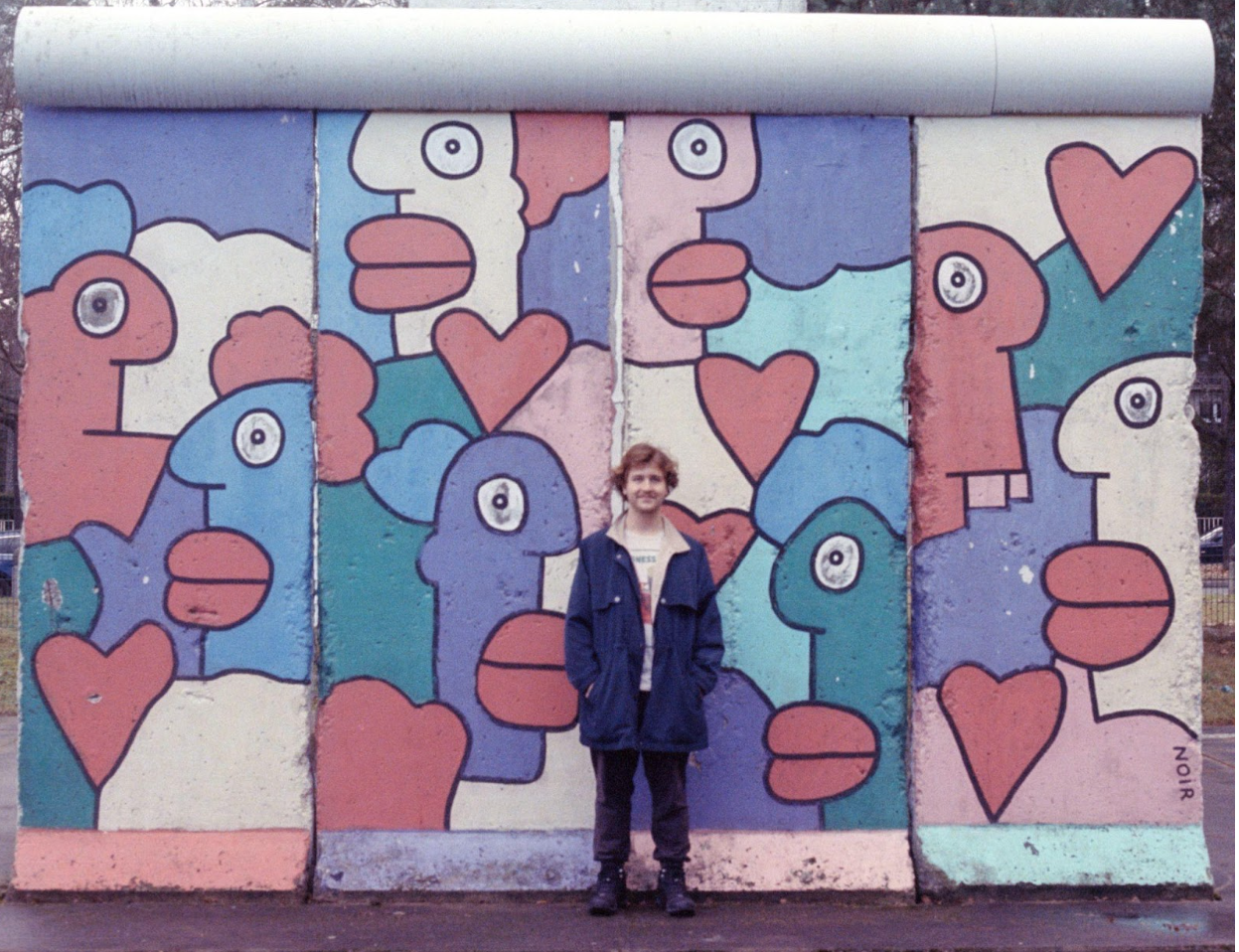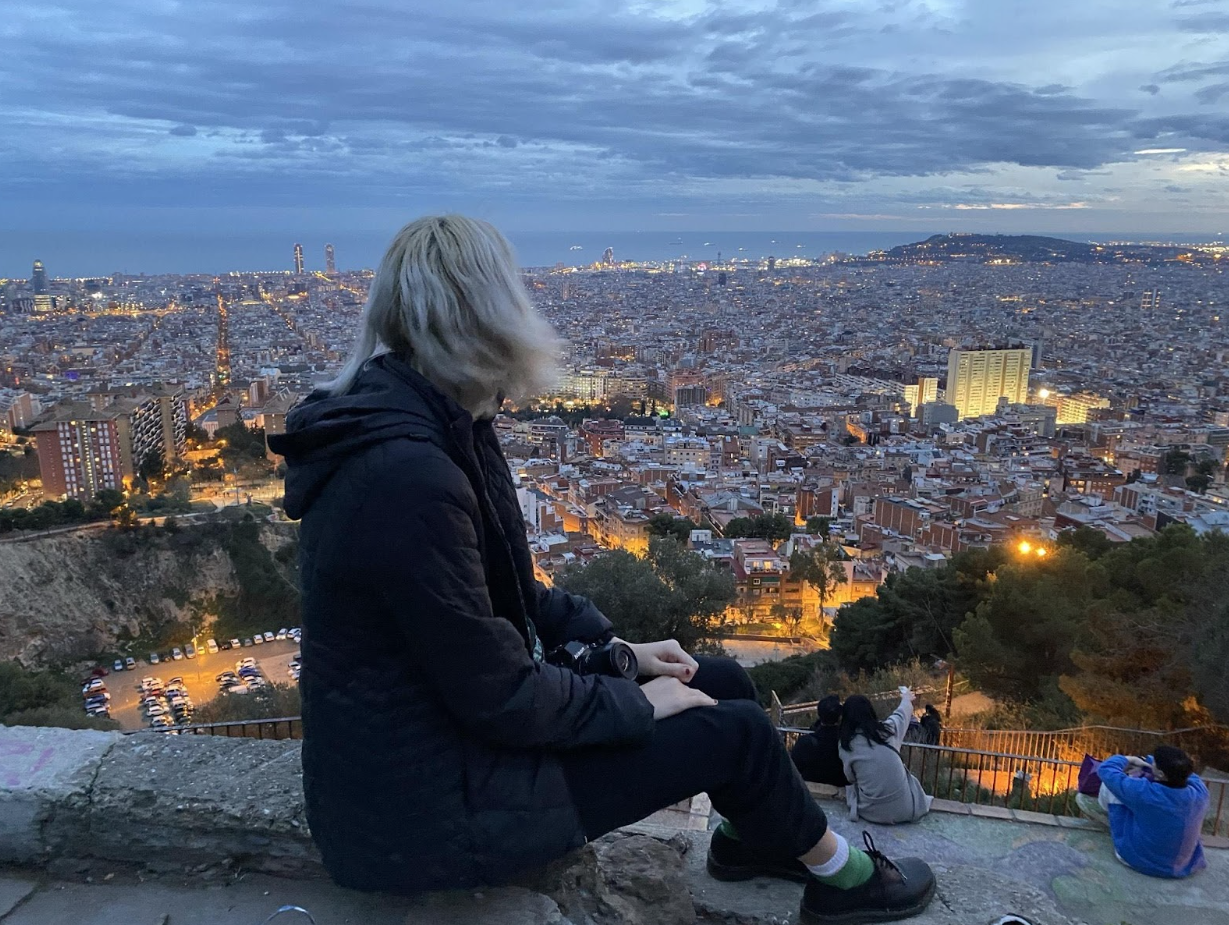Students at New College have unique opportunities to study abroad due to myriad support systems available. This issue, the Catalyst looks into how to make international schooling possible, and hears from study abroad students.
Adjunct Professor of French and Director of Global Education Florence Zamsky told the Catalyst that the earlier students start planning to study abroad, the better. According to Zamsky, starting the first year is ideal, because it gives students time to plan academically and financially.
“Studying abroad as a college student is a once in a lifetime opportunity,” Zamsky explained in an email interview. “Spending some time in a different country and a different culture, while also being exposed to a different language in many cases, has huge benefits. Academic, personal and professional.”
Students who are interested in going abroad should talk to their academic advisor, and email Zamsky at fzamsky@ncf.edu. Zamsky advised that the best time to travel is in a student’s second or third year, and they can go for an academic year, a semester, summer or during the Independent Study Project (ISP) period. Internal deadlines to declare off-campus study and submit paperwork are the first of the month in April for the fall semester, May for summer, November for spring semester and December for the ISP interterm.
International Education Week will also be happening from Nov. 13 through Nov. 17. The Global Education Office will offer drop-in office hours on Monday and Friday of that week from 1 – 5 p.m. in LBR 130.
Many New College students are preparing this fall semester for an upcoming trip abroad. Thesis student Molly Erickson, who is going to London during ISP and the spring, said she has always wanted to go abroad, and dreams of traveling the world for work. She described the application process as a mix of ease and difficulty.
“The easy part is choosing a program, the hard part is the logistics. … It is really hard to make sure you are staying on track sometimes,” Erickson told the Catalyst in an email interview. “When you are first starting, make sure you research. There are so many options and opportunities for all students that it’s important to know what you’re getting yourself into.”
Erickson said she is really looking forward to everything about being in London, especially theater, but is nervous to leave her community and friends. She said she chose the city because of its increased language accessibility.
“I have severe anxiety. So I like the comfort of knowing that I’ll be able to get around
and understand what’s going on,” Erickson said. “I do not know anyone in my program, and it is really hard leaving my amazing community at NCF. Not only that, but this is the first time I will be fully alone. It will be a huge learning experience in adulthood.”
Zamsky told the Catalyst that she was awarded a grant that is enabling her to provide passports for 25 first-year, Pell Grant-eligible students. The grant will subsidize the $165 application fee so that students can receive their first adult U.S. passport. Students have been identified and are currently going through the process of applying for their passports so that they can study abroad in the future.
First-year student Gabriel Ruiz, who has applied for his passport through the grant, said he had wanted to go to Israel to study Hebrew, but won’t be able to because of the war. “I now have my sights on somewhere in Central Europe. I love the culture and people there and want to immerse myself in those countries,” Ruiz explained.
First-year student Haley Beliveau told the Catalyst that she is hoping to study psychology in Austria for her planned AOC. “Although studying abroad is in the near future, I am hoping to gain unforgettable experiences and the ability to form connections that I can maintain throughout my academic career,” Beliveau said..
Students who have studied abroad have positive things to say. Thesis student Tomas Porter, who went to Berlin for a group ISP in January 2023 and focused on film photography while there, said that he really enjoyed his time in the city, and wished he could have stayed longer.
“I always had my ideas and stereotypes about it, like ‘Oh yeah Berlin, techno and stuff,’ but actually being there, it really changed my mind because one thing I noticed was I never had any negative interactions with the people,” Porter shared. “Yeah, some people looked scary, but everyone was super nice, there was no conflict. … I would do it for a longer time, but even just a month of having an experience is totally worth it. If you’re lucky enough that you can do this, do it.”
Porter explained that there were many opportunities to travel while they were there, stating that some of the students took a trip to Poland and around the European Union. “It’s all super nice, you can take a train, and you’re somewhere else. People went everywhere,” he commented.
Porter said the planning for the trip wasn’t too involved, and that the group stayed at a hostel in East Berlin for the month.
“It’s definitely very scary, the idea of being alone and away from family can be very scary, especially if you’ve never experienced that, it can be daunting, and maybe keep you from saying yes. But I think it’s totally worth it,” Porter said.

Thesis student Janie Day said she took a museum studies class while she was there and had a lot of free time to travel and explore the city. Day said she had no issues making friends, and that there were a number of other Americans in the program.
“There was a lot of freedom,” Day said. “I feel like it helped me gain more independence, living by myself in a different country and having to make my own friends, just fending for myself every day.”
Day lived in apartment-style housing with other study-abroad and Spanish students and said she was happy with how it turned out. “It was a really nice living situation. Some other people in the program stayed with host families, but I decided I wanted to live with the other students to make friends.”
Day explained that she’s always wanted to experience other cultures, but didn’t want to be gone from home for an entire semester. She was glad to have the option to go for a shorter period of time.
“I would like to go [again] in the future. It’s definitely somewhere I could see myself living, because I really found a home there in a month. … If you have the opportunity to do it, you totally should, even if you’re scared, because I was scared too but it ended up being so fun, I made so many friends,” Day said.
General information about studying abroad can be found at abroad.ncf.ed.


Studying abroad can truly change your life.
I am an Alum (c/o 2007) in cultural Antho/Studio art. I did a study abroad at the University of Melbourne (AU) in 2006 as an ISP – the program was called Identity and Public Policy in a multi cultural society. I stayed on to do research for my thesis (Communication through Contemporary Indigenous Art in Australia). I had the full support of my thesis advisor, Prof. Maria Vesperi, for both which was invaluable. A combo Anthro/Art degree was unusual but we worked our way through it in a way only (old) New College would have ever allowed!
While doing my research I met my now husband (an Aussie) and moved here permanently just after graduation. That was 16 years ago. I eventually did my Masters here (Design Anthropology – a new discipline of applied anthropology) and gave birth to a gorgeous little Aussie (Lucy, now age 8, who I was pregnant with at my Masters graduation).
I have been working as a user experience researcher since then using both my Anthro and Art/material culture evaluation skills. When I started all this I truly had no idea where it would lead. I just studied what I was passionate about. I’m forever grateful for the support and flexibility I had to do that at NCF.
I am now a research programme manager at the Digital Transformation Agency (an AU federal government agency) working on – you guessed it – public policy in a multi cultural society.
If you’re on the fence about studying abroad – just do it.